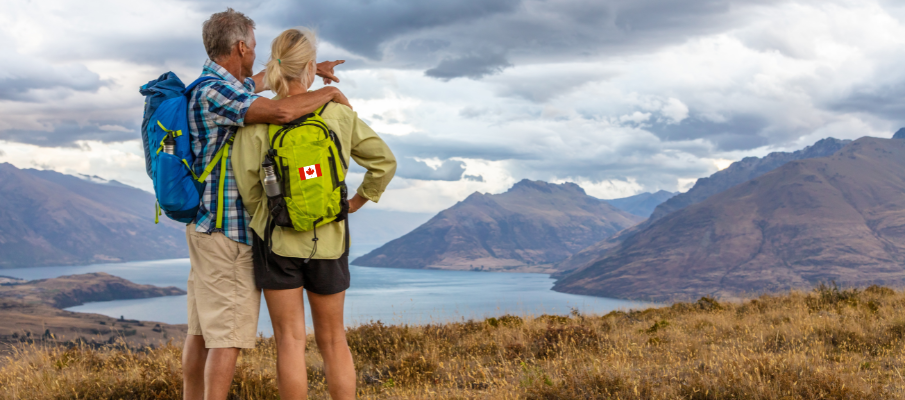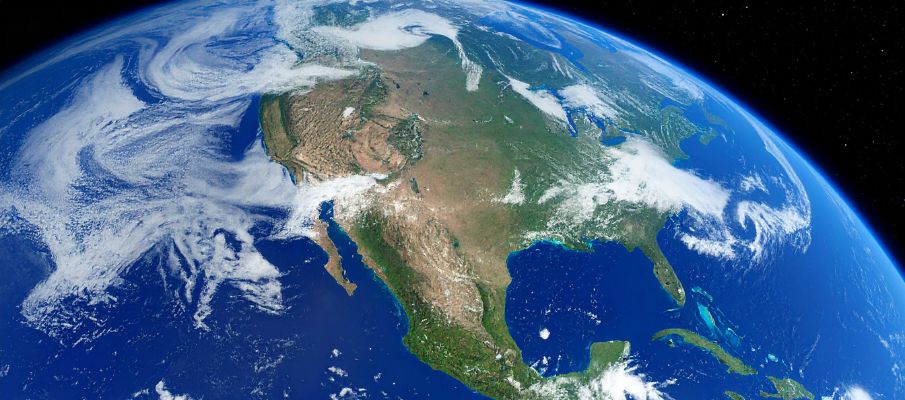Time to Woo Canadian Travellers
By Gina Paladini on

Australia, New Zealand, and the South Pacific: Your moment is now!
As international travel patterns shift, a timely and compelling opportunity is emerging for tourism operators, destination marketing organisations (DMOs), and regional tourism organisations (RTOs): capturing the hearts of Canadian travellers.
Traditionally, the United States has been the top choice for Canadians heading abroad. But times are changing.
For the fourth month in a row, data from Statistics Canada has shown a decrease compared to same month year prior.
The data released 12 May 2025 showed the number of Canadians who had returned from the U.S. in April by vehicle totalled 1.2 million, a 35.2 per cent decline from what was seen the same month last year.
The decline was also seen among air travellers, with the agency reporting that those trips fell by 19.9 per cent last month compared with 2024, to a total of 582,737.
Political and social climates, shifting visa requirements, and a desire for richer travel experiences are leading many Canadians to look further afield — and that’s where Australia, New Zealand, and the South Pacific come in.
“As travel rebounds, we are seeing significant growth in demand from Canada to destinations like New Zealand and Fiji,” said Andrew Stark, Managing Director for Flight Centre Travel Group in the Americas. “With more direct flights and a growing interest in meaningful travel, now is the time for tourism businesses in these regions to focus on Canada.”
So, how can you ride this wave of interest and stand out?
1. Remind Canadians: New Zealand & The South Pacific Are Closer Than You Think
Distance is often misunderstood. A surprising number of Canadians assume destinations like New Zealand and Fiji are simply too far away — yet they’ve travelled to Europe with multiple stopovers.
Let’s compare:
- Vancouver to Rome: ~13 hours total with one stop.
- Vancouver to Auckland: ~13 hours direct.
- Vancouver to Nadi, Fiji: ~11.5 hours direct.
More direct routes from Vancouver, Calgary, and Toronto are making once "bucket-list" destinations far more accessible. Use this to your advantage in your marketing — change the perception of distance by highlighting ease and comfort.
2. Emphasise The Warm Welcome
Canadians are increasingly valuing destinations that feel safe, inclusive, and friendly. Australia and New Zealand regularly top global rankings for safety and hospitality, and the South Pacific is renowned for its warmth, just think of Fiji’s iconic “Bula” welcome.
In contrast to the current unease some travellers feel about heading south of the border, Canada’s kindred destinations offer openness, cultural respect, and a genuine human connection. Share real stories from local hosts and showcase experiences that make travellers feel not just welcome, but part of the community.
3. Celebrate a Shared Love for the Outdoors
Nature is a major motivator for Canadian travellers. Whether it's hiking, snow sports, or beach life — it’s in their DNA.
Promote experiences that reflect their adventurous spirit: tramping in New Zealand’s national parks, surfing off Australia’s coastlines, or eco-adventures in Samoa or the Cook Islands. Use vivid visuals and language that frames your destination as “a different kind of wilderness” — new, yet familiar.

4. Appeal to Cultural Curiosity
Canadians are known for being thoughtful, curious travellers who value culture and storytelling.
Promote your region’s indigenous heritage, traditional arts, local cuisines, and community-led tours. These travellers are seeking meaning, not just sightseeing — so give them ways to connect with your culture authentically and respectfully. From Maori cultural experiences to Fijian village stays, this is where the South Pacific and Australasia shine.
5. Promote Shoulder Seasons and Long-Stays
Remote work has unlocked new possibilities. Many Canadians now have the flexibility to travel for longer — and outside the typical peak holiday windows.
This is your chance to pitch lifestyle-based travel, especially during your shoulder seasons. Think:
- Autumn wine trails in Marlborough
- Spring surf retreats in Samoa
- Long-stay wellness packages in Byron Bay
Plus, New Zealand’s new Digital Nomad Visa and similar long-stay options across the Pacific make this easier than ever.

Don’t Just Be an Alternative — Be the First Choice
With declining US-bound travel, Canadians are actively exploring new and meaningful destinations. If you’re in New Zealand, Australia, or the South Pacific, this is your moment.
As Sarah Kopit, Editor-in-Chief of Skift recently reported,
“the Asian travel leaders I met are watching U.S. policy chaos – visa unpredictability, isolationist trade stances, and fractured alliances – and seeing an unexpected tailwind. International travellers who once defaulted to the United States as a holiday destination are now eyeing alternatives. For countries across Asia, this is a once-in-a-generation opportunity that they are capitalising on.”
With the right targeting, storytelling, and partnerships — especially in Canadian cities with direct air links — you can position your destination not as a backup plan, but as the dream trip Canadians didn’t know was so close to home.
Canada is calling — and we should be answering with open arms.
Need help tailoring your digital marketing for international travellers? Our team at Tomahawk has helped hundreds of tourism businesses grow globally. Get in touch to chat!
ABOUT THE AUTHOR
Gina Paladini | Marketing Director
Read more articles
Why North America is Your New Best Friend (and how to catch the wave)
By Renee Goodsell |

Our General Manager, Renee headed along to the inaugural SKAL International Auckland event to catch an update from Mick Cottrell on all things Auckland Airport. There was one stat that surprised her, and the team.
North America...
What Do Wikipedia and Reddit Have in Common?
By Tomahawk |

They’re probably not in your 2026 marketing plan. But they should be.
While most tourism businesses focus on websites, SEO, social and paid ads, two of the most influential platforms shaping AI-generated answers are Wikipedia and...
